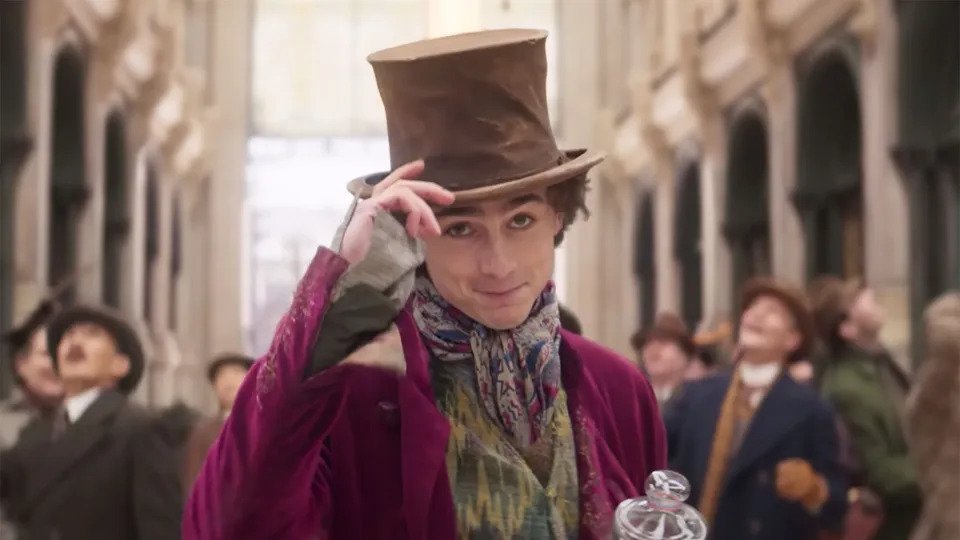FILM REVIEW | The Color Purple
We had the extremely great fortune of being invited to a private screening of the highly anticipated film adaptation of the beloved The Color Purple musical back in December. Hosted at the glorious Regent Street Cinema, a small circle of avid fans got a special screening following an introduction from the cast themselves (major main character moment in life!!)
The film has been adapted for the screen from the 2005 musical, which has gone from strength to strength across its many runs on both Broadway and the West End. Based Alice Walker’s beloved book, which follows the life of Celie, and her traumas, and later triumphs of being a black woman in early 20th century America. In the book Celie narrates through letters to god, and in the musical this is cleverly transitioned into her songs - which ensures the personal relationship the audience builds with Celie is not lost.
As with any film adaptation, there are many factors which must be considered to ensure the translation is seamless, as well as retaining the beauty and raw emotion that a stage production can easily encapsulate. Stage and film acting is entirely different from one another, and the big screen demands larger than life acting, movement and interest, whereas the stage stands still and often more stripped back staging creates more impact.
With all this in mind, there is no doubt that this film is a complete triumph in its translation from stage to screen. Having both the team behind the 1985 film and the 2005 musical produce this adaptation has enabled the most seamless and beautiful film - merging the wonder of the stage show with the visual magic of the film, without losing the importance of the book.
The score takes you on the most magnificent journey, from blow-the-house-down belting ballads, painfully tragic duets and big shiny ensemble numbers, you are taken on such a journey across Celie’s life. Mixing much loved classics from the stage production, with new music written from the film - the show is given an even fresher breath of air, creating a version of the story completely unique from the other forms.
I think it’s really impressive that new music has been created for this film - as it does not create a total carbon copy of the already well adored musical and film, and is thus not trying to replace them, but instead offers a new format for the story and its important message to be received by new and old audiences. It reiterates the relevance of the story’s message, whilst creating a hybrid of the book, film and show, and thus keeping it and the importance of its message in mainstream media.
The story has three absolute powerhouse female leads at its core, and they are all wonderfully balanced and supportive of one another - celebrating each other’s development throughout the film, it is a prime example of uplifting women and putting them at the centre of the story. But what’s even more special about the musical film adaptation is that women who performed in the Broadway production make their stance in the movie.
Fantasia Barrino leads with such power as Celie, despite portraying such an oppressed character, her presence is so strong from the start, and her journey with Celie is so wonderfully honest, you’re routing for Celie from the first scene. Barrino holds the audience captive in her performance of “I’m Here” and it’s fair to say there wasn’t a dry eye in the house.
Notably, it’s Danielle Brooks’ performance that stands out above the rest. Her portrayal of Sofia hits the audience with an almighty amount of power and emotion, she is such a force on the big screen. What Brooks manages to do with Sofia’s battle between strength and vulnerability is admirable. It is no secret expectations were high, having won a Tony for her stage depiction, and it is without doubt that Brooks’ transition to the screen exceeded the high bar already set by herself.
Blitz Bazawule’s direction is hugely worthy - it stays true to the book, but has been cleverly enhanced to flourish on the screen. Incorporating all the pain and power of the book, with the marvel of the music the cast effortlessly is led, feeling every bit supported on the screen.
The only character which perhaps felt slightly over dramatised was that of Shug. where the other characters offered such intimate insights into their lives, it felt a little strained at times against the over eccentric scenes with Shug. they did of course bring colour to the story, but slightly at the detriment of the harder, more serious scenes. It seems these were perhaps incorporated to add more of the silver screen spectacle to the film, but did feel as if they were slightly too over the top.
On a whole however it did not lose the message of the story, and the outcome at the finale was so beautifully rendered, it is impossible to watch this film and not feel the emotions and message as honestly as it is laid out on the screen.
In a year when theatre is really heading into the cinema quite frequently (check out our guide to the theatre shows coming to UK cinemas in 2024) - I think is one of the strongest on offer!





